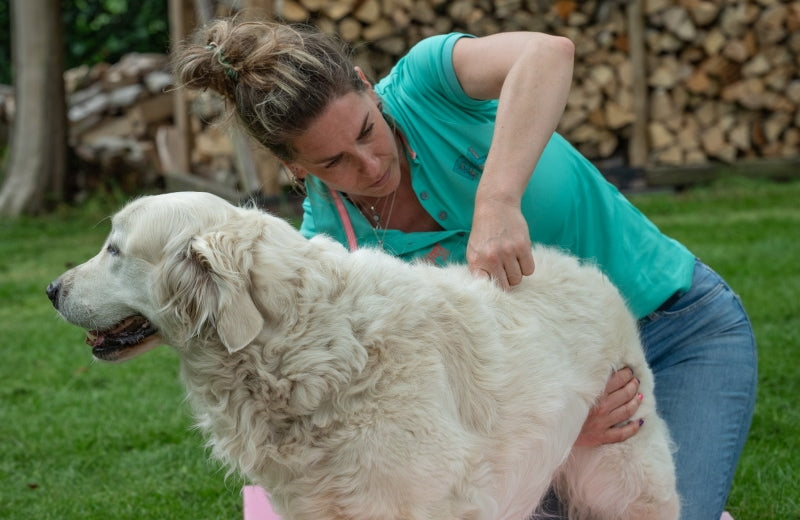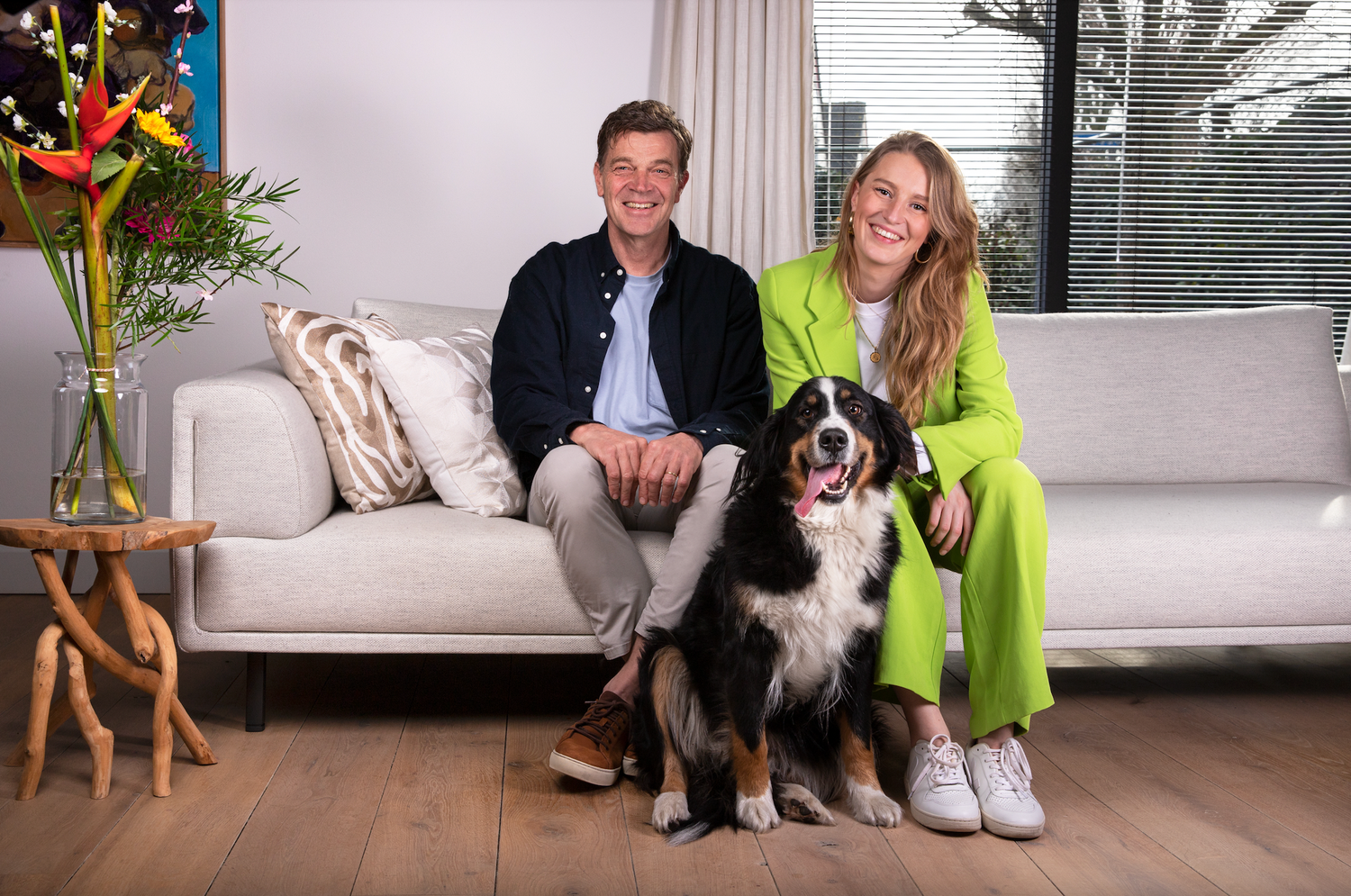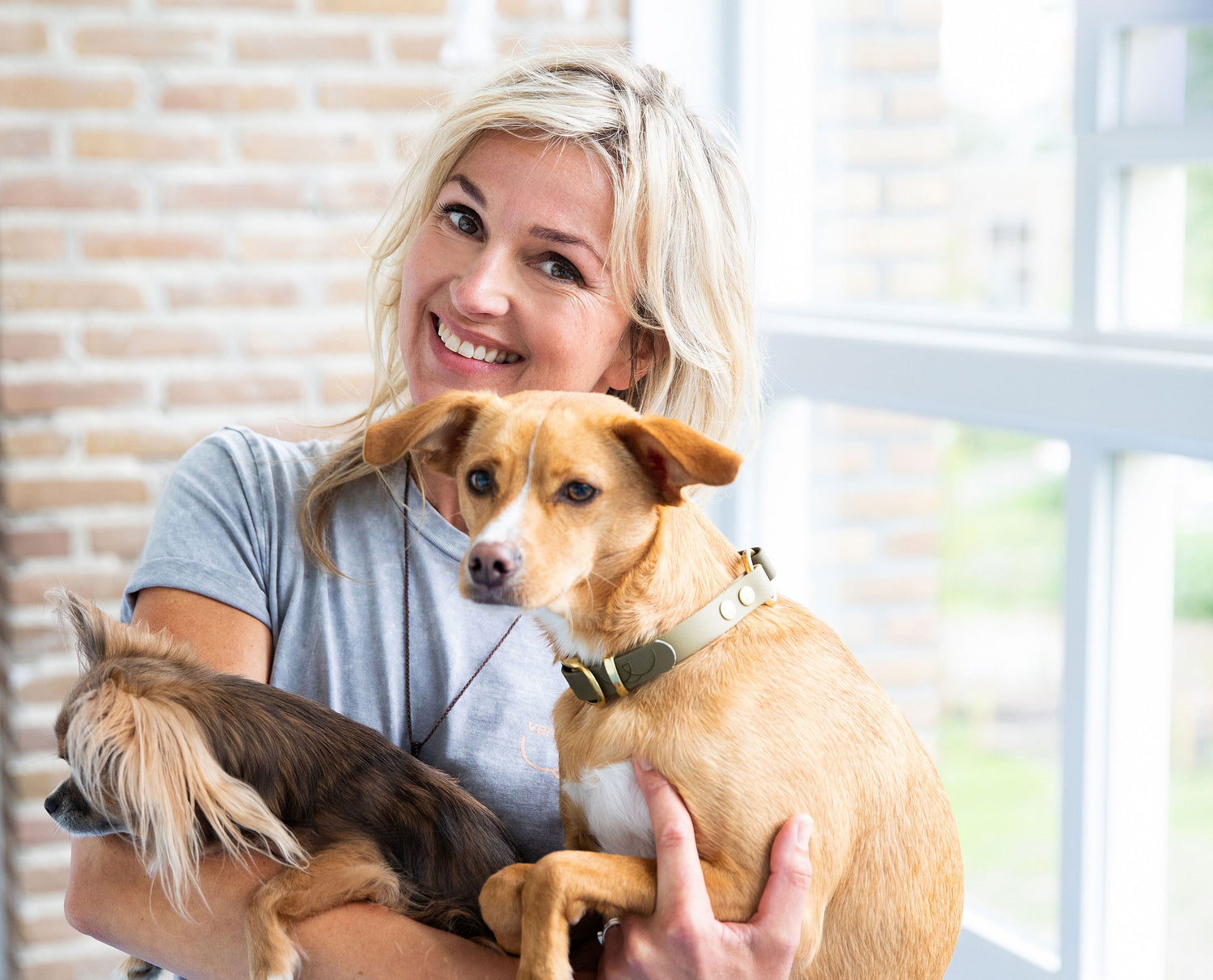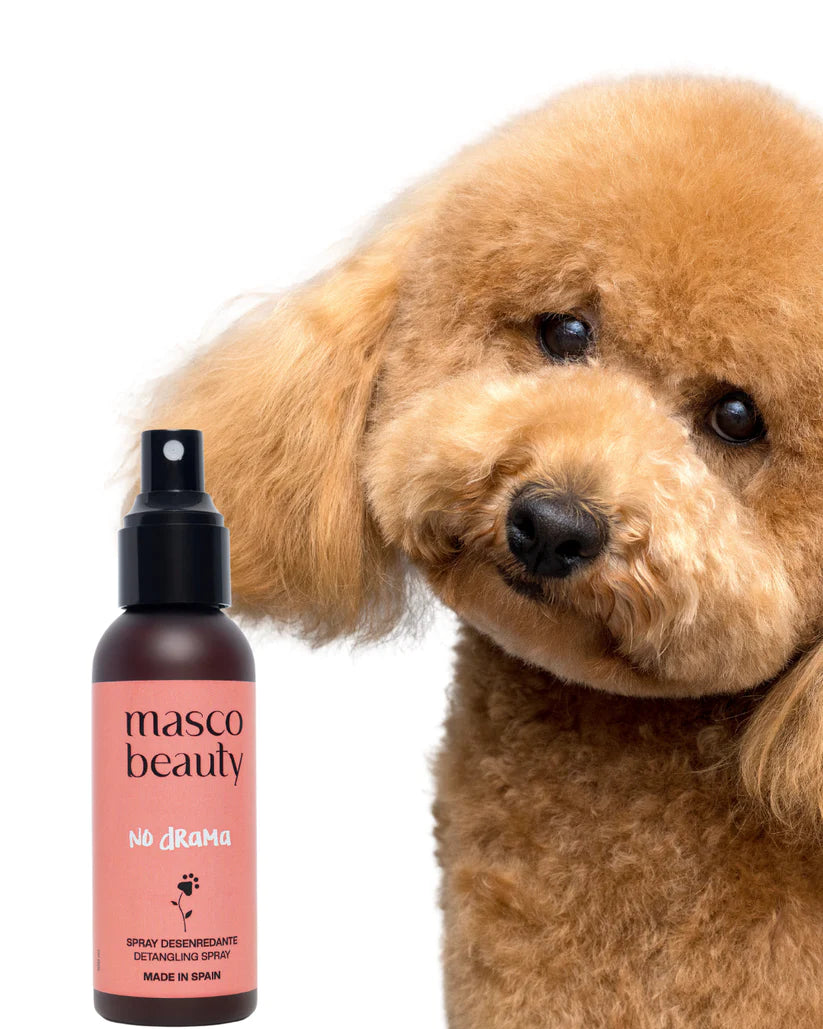This week we welcome Wendy de Ruijter from de Ruijter Animal Physiotherapy & Chiropractic. An independent boss lady who is devoted to helping animals with her practice.
Q: We know you and are absolute fans of what you do. However, for our readers please tell us a little about yourself.
A: To start, I was born and raised in Rotterdam. And I always wanted to work with animals but had no idea in what profession.
Q: Then how did you find your current profession?
A: At one point I started traveling for a year and came into contact with animal physiotherapy for the first time. During my trip through Australia and later Spain, I mainly worked with horses. The animal physiotherapist training is for dogs, cats, and horses.
When I came back from my trip, I started looking into this profession and found out that you first have to complete the training as a human physiotherapist. I immediately did that and thereafter I completed the two-year training to become an animal physiotherapist. Since 2013 I had my practice: de Ruijter Animal Physiotherapy & Chiropractic. Since 2019 I have stopped human physiotherapy and I only treat animals from Monday to Friday.
Q: So it was love at first sight. For those people how would you explain your profession?
A: Of course, an animal physiotherapist is specialised in the musculoskeletal system of the animal. Suppose, a dog has joint problems and has difficulty moving, then an animal physiotherapist can offer a solution. I use different treatment techniques such as massage, mobilisations, and exercise therapy. Chiropractic is a specialisation. A chiropractor adjusts joints (popularly also called 'cracking') and ensures that they regain full freedom of movement.
Q: So interesting! What is it that you like the most about your profession?
A: Being around animals all day makes me very happy. The gratitude I receive from them and the hugs and kisses I get. That is very different from working with people. Also, of course, I don't want hugs and kisses from my human patients haha! But animals are so honest and pure, they don't pretend and are sincerely grateful for your help
Q: We can Imagine! We love passion, what is your real passion
A: I'd have to say my practice! I have worked very hard to get to where I am today and I am very proud of that. My passion is to make all those animals, that I treat, comfortable again. And of course my handsome jump horse but today we are only talking about dogs!
Q: You can be so proud of yourself. We love that! as you of course also treat horses. Could you please also explain what the process is for treatment at your practice?
A: I'll give an example: A dog is referred to me by a vet. For example in connection with osteoarthritis; wear off a joint. I have a mobile practice and I come to the dogs' homes. Then I start with the anamnesis, the interview. I hereby ask everything about the complaint and the history of the dog. Then I examine the dog and get to work with the examination. Afterward, I make a plan of action together with the owner. Lastly, a follow-up appointment is scheduled and I send my report to the vet.
Q: How convenient that you have a mobile practice! We saw that you do laser therapy as well, could you explain a little more about this?
A: High Power Laser Therapy (HPLT) is a great method to promote recovery. It reduces moisture, inflammation, irritation and it reduces pain. I like to use it on dogs with joint complaints or after surgery such as a hernia or ruptured cruciate ligament.
Q: Sounds great! Could you perhaps give us an idea of what an average day looks like for you?
A: Every day is different, and that makes my work so much fun! As I mentioned, I have a mobile practice so I'm on the road from one client to another all day. I can treat 4 dogs and 2 cats on Monday and 5 horses and a dog on Tuesday. Sometimes I treat a dog in a luxurious canal house in the center of Amsterdam and an hour later I am in the mud treating a pony. I like it, the variety. I really wouldn't want to work in 1 place for the time being.
Q: So anything but boring! To dive a little more into dogs specifically; what are the most common complaints for dogs? How come? and are there any specific complaints per breed?
A: Well, the older dogs often come with osteoarthritis complaints, so joint complaints. And the more active dogs come mainly for chiropractic. If they have made a tumble, it sometimes happens that a joint in the spine moves less. I then treat that with an adjustment.
Yes, some breeds have specific complaints. For example, I see many French Bulls after an operation for patellar luxation; a kneecap that continuously dislocates. And Dachshunds often have a hernia. For those cases, I start a parallel trajectory with colleagues in animal physiotherapy with a hydrotrainer to make the dogs stronger.
Q: Good to know, do you have any tips on how this can be prevented?
A: Yes, I have some tips!
- Make sure your dog gets plenty of exercises. And also walk and run at his own pace. This keeps your joints flexible.
- Playing with the ball is possible for a while, but not for half an hour in a row. When the dog gets tired, it becomes less coordinated and runs and turns sloppy. I still see a torn cruciate ligament.
- Make sure your dog is on weight. Unfortunately, I see too many obese dogs. This is very bad for joints and the entire metabolic system.
- Make sure your dog can rest comfortably at home in a comfortable basket.
- For dogs with a thin coat, I recommend a sweater or jacket on cold days. Even the big dogs! So this is not just for small dogs.
Q: Thank you so much! these tips are very useful. Also, do you have any tips on what people can do in their homes? Any specific recommendations?
A: Happy to help! Yes, I do.
- I am a huge fan of orthopedic pillows for dogs. Whether it's a small dog or a very large one. The cushions provide proper support for the body.
- Stairs next to the couch and the bed (for the lucky ones who are allowed in the owner's bed) ensure that your dog does not have to jump. This is better for the back.
- Have a rug next to the couch so that your dog doesn't slip if he accidentally jumps off the couch.
- Do not play indoors on a slippery floor!! I see it happening so much; drifting and sliding dogs. Some even hit the wall. Prefer to play with your dog in the garden or on a field.
Q: Great! On another note, we are so impressed with how you build your business, what is the best business advice that other (female) entrepreneurs can benefit from?
A: Charge a rate that you are worth. And don't watch what others are doing. Because… you are worth it!
Q: Great advise! We love a good story, what is a fun story that you have experienced in your practice?
A: Most of all, it's a sweet story and I've experienced it several times. However, the most notable times were when I treated a Bullmastiff and a Boulab (Berner Sennen x Labrador).
With both animals, and they are quite tough breeds, I was clearly thanked after the treatment. The Bullmastiff came up to me, laid his head on my shoulder, stood there for a moment, and then walked over to his sleeping place to start snoring.
The Boulab approached me after the treatment and started kissing me. Something she never did with 'strangers' according to the owner. As I mentioned before: 'animals are so pure.'
Q: Is there anything else you would like to tell the Furmey Family about Physiotherapy and Chiropractic?
A: Do not wait too long if you notice changes in your animal. Many dogs do not show that they are bothered by something. Only when there is a stiff back or an abnormal gait or other behaviour do people sound the alarm.
A preventive animal physiotherapeutic check is always recommended! Especially for the older dog or the super active (or lazy) dog.
I am sometimes told that dogs suddenly appear a few years younger in behavior after treatment. Then it turns out that something has been stuck in the body for a long time.
We love our Furry Friends and they deserve the best care!
Q: We can't agree more! Thank you so much for your time, Wendy!





